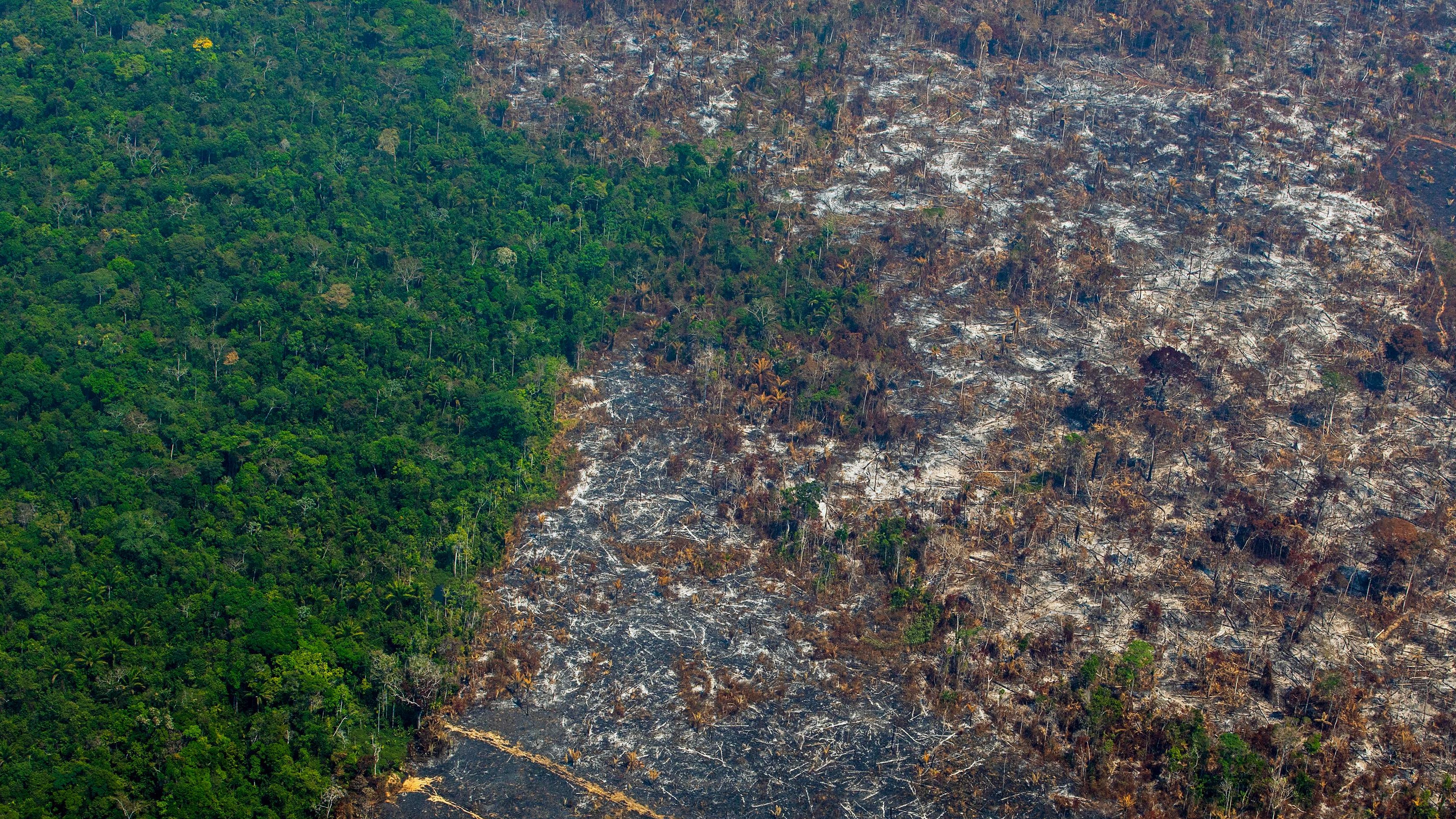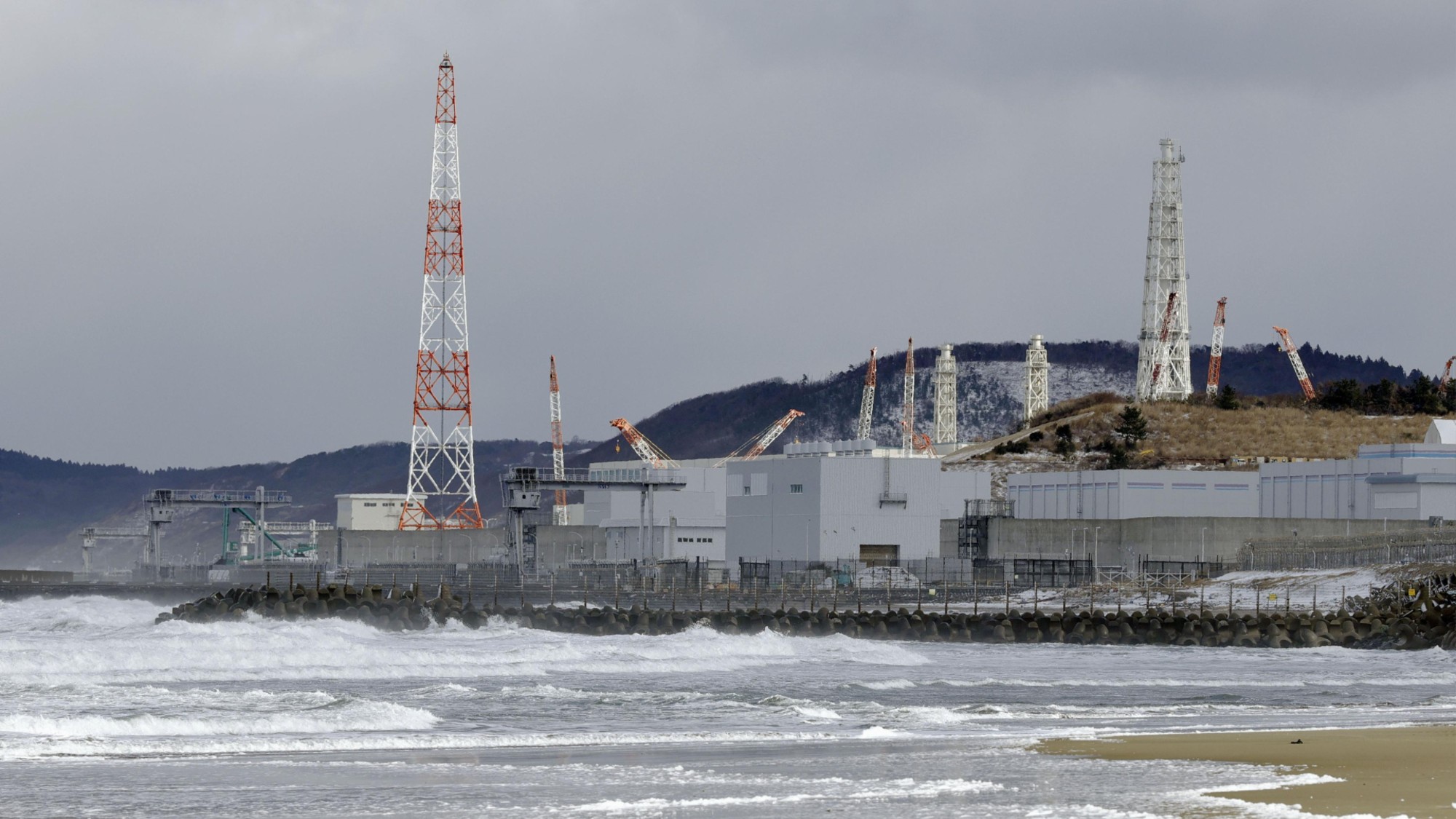Why is halting deforestation so hard?
Almost £14bn in public and private funding has been promised to help end deforestation by 2030

A free daily email with the biggest news stories of the day – and the best features from TheWeek.com
You are now subscribed
Your newsletter sign-up was successful
World leaders have pledged to end deforestation by 2030 in the first major achievement of the Cop26 climate summit in Glasgow.
The world’s two largest economies, the United States and China, will sign the pledge alongside more than 100 other countries including the United Kingdom. Crucially, leaders from the world’s “major forested countries”, such as Brazil, the Democratic Republic of the Congo and Papua New Guinea, will also commit to the promise to preserve the world’s forests, said The Guardian.
What has been pledged?
The Week
Escape your echo chamber. Get the facts behind the news, plus analysis from multiple perspectives.

Sign up for The Week's Free Newsletters
From our morning news briefing to a weekly Good News Newsletter, get the best of The Week delivered directly to your inbox.
From our morning news briefing to a weekly Good News Newsletter, get the best of The Week delivered directly to your inbox.
The deforestation agreement, named the Glasgow Leaders’ Declaration on Forest and Land Use, was unveiled at the climate summit this morning. The pledge is backed by a total of almost £14bn in public and private funding, which will go towards helping developing countries to “restore damaged land, tackle wildfires and support indigenous communities”, said the BBC.
And an additional £1.1bn fund is to be created to protect one of the world’s largest tropical rainforests in the Congo Basin.
Separately, the governments of 28 countries also committed to removing deforestation from the global food trade and agricultural products such as palm oil, soya and cocoa, industries that “drive forest loss by cutting down trees to make space for animals to graze or crops to grow”, said the broadcaster. There were also promises from 30 of the world’s biggest companies to “end investment in activities linked to deforestation”.
Prime Minister Boris Johson hailed the commitments from world leaders, and said “more leaders than ever before“ had made the “landmark” commitment. “We have to stop the devastating loss of our forests,” said Johnson, as well as “end the role of humanity as nature’s conqueror, and instead become nature’s custodian”.
A free daily email with the biggest news stories of the day – and the best features from TheWeek.com
The countries set to commit to the pledge account for around 85% of the world’s forests.
The pledge comes amid “growing awareness” of the role nature and deforestation plays in the ensuing climate crisis, said The New York Times (NYT). Forests and peatlands are “natural” storehouses for carbon, but release greenhouse gases when these areas are “logged, burned or drained”.
And land clearing for agricultural purposes is one of the major sources of greenhouse gas emissions – it accounts for “almost a quarter” of emissions, with large swathes of forest land destroyed to make room for agricultural products like palm oil, soy and beef, according to The Guardian.
Why have previous promises failed?
The 2014 New York Declaration on Forests also aimed to end deforestation by 2030 and included some major forested countries, such as Indonesia, some Brazilian states, and the United States and European Union.
But the agreement “set goals without means to achieve them” argued the NYT, with environmentalists worried that “the same will happen this time”.
One of the primary reasons the 2014 agreement “failed to make good on its promises” to stop deforestation was that the declaration did not include Brazil, a country that holds the “biggest absolute losses” in terms of deforestation after “rampant” clearances in the 2000s, said New Scientist.
And while the country had made huge strides towards ending deforestation, the 2019 election of Jair Bolsanaro as president saw the arrival of “a clear political agenda to prioritize agriculture and extractive industries and roll back environmental protections”, Constance McDermott from the University of Oxford told the magazine.
While Brazil has signed up to this new agreement, climate activists have warned world governments to pay attention to its “destructive policies of the recent past” rather than “vague promises about the future”, which they argue are “aimed at securing cash”, said The Guardian.
“Nowadays Brazil has an anti-environmental policy. They are paralysing everything. Deforestation and forest fires are out of control. This must change to ensure that climate money – which is important for our country – can be used in very detailed, specified way,” Suely Vaz, a former head of the environment regulator Ibama, who now works for the Climate Observatory, told the paper.
And the latest data shows that deforestation in the Brazilian Amazon has hit its highest level in a decade, with an area “nearly seven times bigger than greater London and 13 times the size of New York City” cleared between August 2020 and July 2021, according to data released by Imazon, a Brazilian research institute that has been tracking Amazon deforestation since 2008.
But there are some “reasons to be cheerful” about the proposed plans to end deforestation, said BBC environment correspondent Matt McGrath, “specifically the scale of the funding, and the key countries that are supporting the pledge”.
Yet “major questions” remain over significant aspects of the plan, such as how it can be “effectively policed”, with worries that funders could not verify that forests were being protected without “spying from satellites or challenging national sovereignty in some way”.
And removing the link between deforestation and consumer goods sold in developed countries could also prove a challenge, particularly when it comes to animal meat. With so many animals raised on imported soya grown from forest-cleared land, it remains to be seen whether governments and companies will be willing to push consumers to “eat less meat to save the world’s most important forests”.
-
 The Olympic timekeepers keeping the Games on track
The Olympic timekeepers keeping the Games on trackUnder the Radar Swiss watchmaking giant Omega has been at the finish line of every Olympic Games for nearly 100 years
-
 Will increasing tensions with Iran boil over into war?
Will increasing tensions with Iran boil over into war?Today’s Big Question President Donald Trump has recently been threatening the country
-
 Corruption: The spy sheikh and the president
Corruption: The spy sheikh and the presidentFeature Trump is at the center of another scandal
-
 The plan to wall off the ‘Doomsday’ glacier
The plan to wall off the ‘Doomsday’ glacierUnder the Radar Massive barrier could ‘slow the rate of ice loss’ from Thwaites Glacier, whose total collapse would have devastating consequences
-
 Can the UK take any more rain?
Can the UK take any more rain?Today’s Big Question An Atlantic jet stream is ‘stuck’ over British skies, leading to ‘biblical’ downpours and more than 40 consecutive days of rain in some areas
-
 As temperatures rise, US incomes fall
As temperatures rise, US incomes fallUnder the radar Elevated temperatures are capable of affecting the entire economy
-
 The world is entering an ‘era of water bankruptcy’
The world is entering an ‘era of water bankruptcy’The explainer Water might soon be more valuable than gold
-
 Fifteen years after Fukushima, is Japan right to restart its reactors?
Fifteen years after Fukushima, is Japan right to restart its reactors?Today’s Big Question Balancing safety fears against energy needs
-
 Climate change could lead to a reptile ‘sexpocalypse’
Climate change could lead to a reptile ‘sexpocalypse’Under the radar The gender gap has hit the animal kingdom
-
 The former largest iceberg is turning blue. It’s a bad sign.
The former largest iceberg is turning blue. It’s a bad sign.Under the radar It is quickly melting away
-
 How drones detected a deadly threat to Arctic whales
How drones detected a deadly threat to Arctic whalesUnder the radar Monitoring the sea in the air